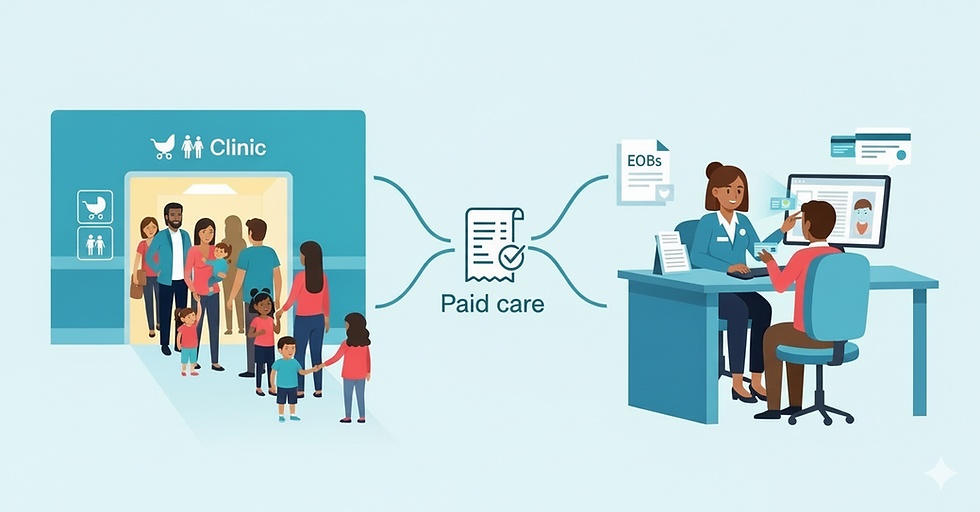Mind the Gap: Unraveling Mental Health Parity Policies in the U.S.
- Nicholas Burt, LMFT

- Jan 13, 2024
- 2 min read
In the realm of mental health, strides have been made to establish parity with general medical services. Dr. David Godot, a Clinical Psychologist, conducted a thorough analysis of the existing mental health parity policies in the United States. This blog post will delve into the key insights from Dr. Godot's analysis, examining the achievements, limitations, and proposing potential solutions to enhance mental health coverage.

The Quest for Parity:
Dr. Godot acknowledges the progress made in 1996 with the Mental Health Parity Act (MHPA) mandating equal annual and lifetime dollar limits for mental health benefits. A subsequent milestone was the Paul Wellstone and Pete Domenici Mental Health Parity and Addiction Equity Act of 2008 (MHPAEA), extending parity to various aspects, including co-payments and deductibles.
The Need for Mental Health Parity:
Drawing on the Substance Abuse and Mental Health Services Administration's survey, Dr. Godot emphasizes the unmet need for mental health treatment. Financial constraints have left millions unable to access vital mental health services, posing a significant public health crisis. Additionally, research indicates that addressing mental health issues can reduce overall medical service utilization.
Current Limitations and Challenges:
While the MHPAEA addresses certain disparities, it falls short in requiring all insurance plans to provide mental health coverage. The burden placed on employers, without additional regulations on insurance providers, raises concerns. Dr. Godot points out the potential negative consequences for lower and middle-class workers, creating a paradox where legislation intended to eliminate discrimination may inadvertently exacerbate the issue.
Problematic Impacts of Mental Health Parity Legislation:
Dr. Godot sheds light on the unintended consequences of the legislation, highlighting the potential for employers to cut mental health coverage due to increased financial burdens. This, in turn, affects vulnerable populations, such as the working poor, who already face high levels of external stress.
Solving the Problem:
Dr. Godot proposes a philosophical and pragmatic solution – treating mental illness as a medical condition deserving equal coverage. Insurers, rather than employers, should bear the responsibility of providing mental health coverage within the existing terms of general medical services. This approach aligns with the ideology of mental health parity and offers potential financial benefits for insurers.
The Political Challenge:
Despite the logical and feasible nature of this solution, Dr. Godot acknowledges the political challenges. The powerful insurance lobby's resistance to increased obligations poses a hurdle. However, he suggests that forming alliances with healthcare providers and patient groups, along with grassroots organizations, could be instrumental in reshaping the landscape of mental health coverage.
Billing Implications:
Crucially, Bridgeway Billing operates at the intersection of mental health treatment and insurance reimbursement. Dr. Godot's analysis prompts consideration of how the billing landscape is impacted by mental health parity. The financial burden on employers and potential cutbacks in mental health coverage may directly affect the billing processes and reimbursement rates for providers.
Conclusion:
Dr. David Godot's analysis provides a comprehensive overview of the current state of mental health parity in the U.S. While celebrating the progress made, he cautions against the unintended consequences of the existing legislation. The call to shift the responsibility to insurers and foster alliances with stakeholders marks a potential path forward in bridging the gap in mental health coverage.
Citation:
Godot, D. (Year). "Mental Health Parity: A Policy Analysis." Retrieved from https://davidgodot.com/mental-health-parity-policy-analysis/




Comments